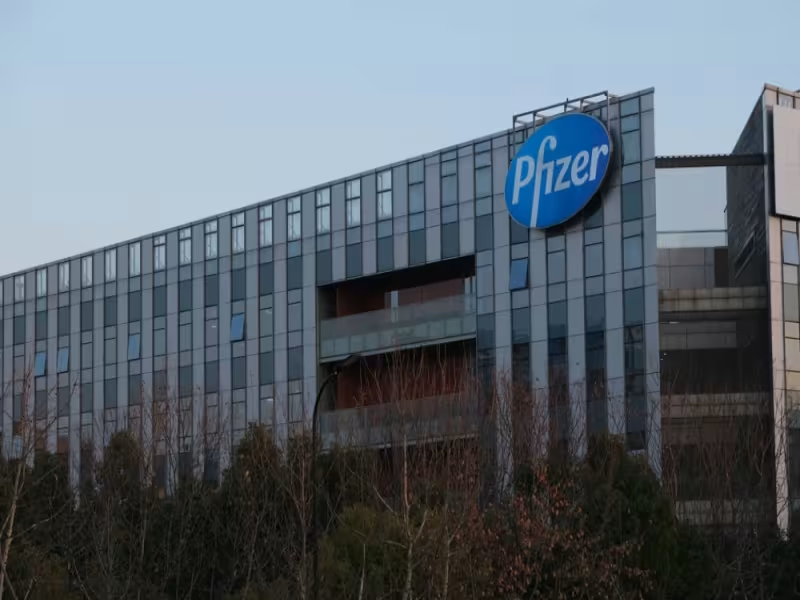
SHERIDAN, WYOMING - November 13, 2025 - Pfizer has completed its $7 billion acquisition of Metsera, securing a set of differentiated obesity and cardiometabolic candidates as regulatory momentum accelerates around metabolic disease innovation in the United States. The deal positions Pfizer at the center of one of the most politically scrutinized and fastest-growing therapeutic markets, as federal leaders push for expanded access and a stronger domestic pipeline in obesity care.
A Strategic Bet on a Policy-Charged Therapeutic Frontier
The acquisition gives Pfizer an obesity development engine at a time when the U.S. government is pressuring industry to advance new metabolic treatments amid rising demand for GLP-1 agents. With federal programs preparing for expanded coverage frameworks, and agencies evaluating how metabolic drugs fit into long-term public health cost structures, the transaction aligns Pfizer with national priorities to reduce cardiometabolic risk and chronic disease burden.
Metsera's assets provide Pfizer with multiple entry points into this environment, including a Phase 3-ready injectable GLP-1 receptor agonist (MET-097i), a Phase 1 amylin analog (MET-233i), an oral GLP-1 candidate, and additional nutrient-stimulated hormone programs. These mechanisms mirror public health goals around weight reduction, cardiovascular risk mitigation, and improved metabolic outcomes-areas increasingly tied to federal strategy discussions.
Pipeline Integration Strengthens Domestic Development Capacity
From a workflow perspective, Metsera's platform gives Pfizer immediate candidates capable of advancing through clinical and regulatory pathways already familiar to FDA reviewers. At a time when obesity drug development is expanding rapidly and the FDA has intensified scientific dialogue around metabolic pathways, Pfizer benefits from bringing late-stage, regulatorily aligned programs under one roof.
The company's development, manufacturing, and quality teams gain assets that fit seamlessly into existing regulatory frameworks, reducing uncertainty and accelerating time to market. As regulators increasingly emphasize obesity as a chronic disease requiring continuous innovation, Pfizer's expanded pipeline provides strategic flexibility to adjust to evolving evidence expectations and reimbursement pressures.
Industry Trends: Competition Intensifies as Obesity Frontier Matures
The obesity market is experiencing unprecedented competition, with GLP-1s, dual agonists, and oral agents generating strong clinical and political attention. Novo Nordisk and Lilly currently lead the commercial landscape, while smaller firms have pursued niche mechanisms with varying regulatory traction.
Pfizer's pivot through acquisition-not internal development-reflects a broader market shift: companies unable to accelerate metabolic programs internally are turning to external innovation to remain competitive. This trend is reinforced by public sector expectations that biopharma broaden treatment access and support sustainable cost models for obesity care.
As Albert Bourla said: "This strategic milestone represents more than a transaction-it's a deliberate investment in the future of medicine." His framing underscores how portfolio expansion is now tied to demonstrating alignment with federal health priorities, not only commercial opportunity.
Strategic Implications for Health Systems and Manufacturers
For hospitals, providers, and integrated care networks, Pfizer's expanded metabolic pipeline could diversify therapeutic choices and support broader cardiometabolic programs. Health systems increasingly rely on evidence-driven obesity interventions to reduce long-term risk factors associated with cardiovascular disease, diabetes, and other chronic burdens.
For manufacturers, the deal reinforces the need for regulatory-ready platforms capable of scaling under heightened oversight. Companies with single-asset obesity programs may face growing pressure to demonstrate differentiation as regulators refine endpoints, safety expectations, and long-term real-world evidence requirements.
Pfizer's acquisition also highlights the financial stakes. The deal is expected to be dilutive through 2030, signaling that the company views metabolic disease as a long-term strategic pillar rather than an immediate revenue engine. Competitors may be prompted to reassess whether internal R&D alone can keep pace with shifting market and policy dynamics.
Learn More
Additional information about Pfizer's therapeutic pipeline, corporate strategy, and ongoing development programs is available at https://www.pfizer.com.